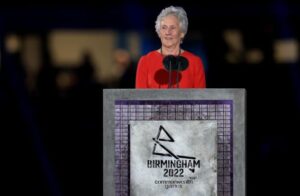Since the Commonwealth Games began over nine decades ago as the Empire Games, many countries have become independent and turned republic too
SURESH MENON
Sportstar 19 AUGUST, 2022 09:00 IST

Something about the Commonwealth Games has always seemed off kilter. It is not a Continental competition like the Asian Games, nor is it anything like the Olympics. Only in a few disciplines is the competition world class. And even in these, top athletes often stay away owing to training schedules. It is friendly, almost drugs-free, and India usually do well. For some, those alone might sound like good reasons to retain the Games.
But in the end, the question lingers: How relevant are the Commonwealth Games? Multi-sport events are expensive, and certainly in recent years haven’t delivered on their promises to the host city.
But beyond the economics, there is the question of what they really mean. The Commonwealth is a collection of some 50-odd countries, most of them former British colonies. It speaks well for both the conquerors and the conquered that their relationship is such that they can exist as a grouping under the Queen, who is the head of the Commonwealth. But what happens after the Queen’s time? Is the Commonwealth too big to fail or is it already living on borrowed time?
Birmingham came into the picture after Durban in South Africa pulled out citing the exorbitant cost. For the same reason Kuala Lumpur, Cardiff, Calgary, Adelaide also withdrew. The next host was meant to be decided in 2019 but there was little interest, and it was only earlier this year that Victoria in Australia was officially declared the venue for a scaled down Games.
But it is not the economics alone that can be worrying. The comedian John Oliver who called the Commonwealth Games an “off Broadway Olympics” may have been only partly joking when he called it “the historic display of a once-mighty nation gathering the countries it lost and finding a way to lose to them once more.” The Games as a visible and live celebration of colonialism and reminder of all its sins may be out of place in a world conscious of this and looking for redressal.
Since the Commonwealth Games began over nine decades ago as the Empire Games, many countries have become independent and turned republic too.
Still, for India, it will be a loss if the Commonwealth Games disappear. In the absence of the U.S., Russia, China, Japan, Germany and other sporting superpowers, they are guaranteed a finish in the top 10, even in the top four as happened in Birmingham (they were 48th at the Tokyo Olympics). It gives some of their not-quite-world-class sportspeople a chance to win a medal or two and earn bragging rights.
There is a feel-good factor across the country when the stories of our successful athletes — otherwise ignored — are widely publicised.
Louise Martin, President of the Commonwealth Games Federation, has said that the Games have been in existential crisis for about a decade now, and “Work has already started to alter the focus from the hegemony of the British Empire to one of global peace.” A shift in focus, a change in name, perhaps?

